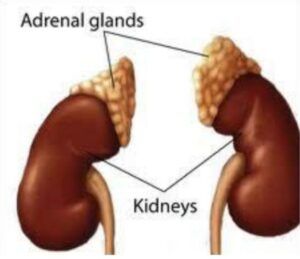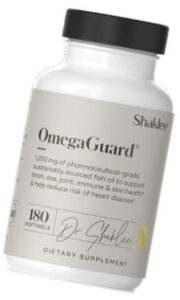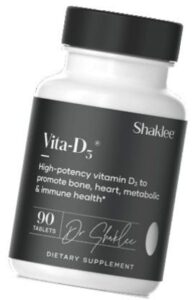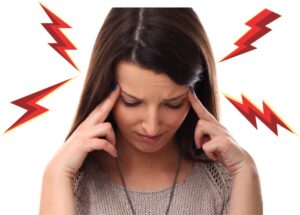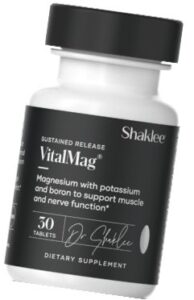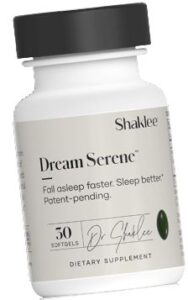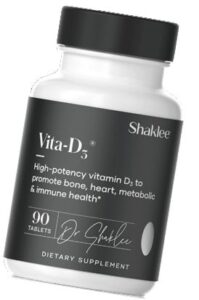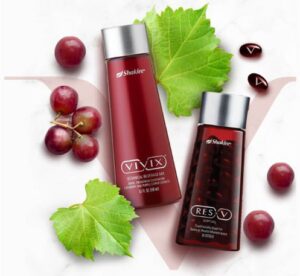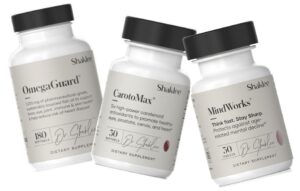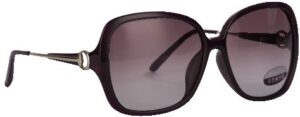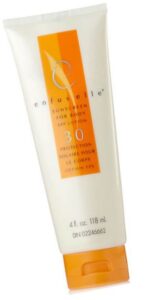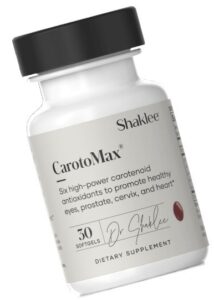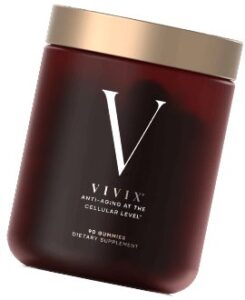This issue of Making a Difference! is brought to you by…
Call Enterprises
Cindy Call
(407) 963-6964
Send Us An Email
Go Shopping
In this issue…
♦ Understanding your adrenal glands ♦ Symptoms of poor adrenal health…
♦ Recovering from adrenal fatigue / insufficiency…
♦ The difference between adrenal fatigue and adrenal insufficiency…
♦ Shaklee supplements for healthy adrenals ♦ The four stages of adrenal fatigue
♦ Wow! You’ll love the YOUTH Ageless™ Duo! ♦ Key ingredients…
 “Choose your foods carefully, as though your life depended on them… for it does!
“Choose your foods carefully, as though your life depended on them… for it does!
Cleanse your body regularly and thoroughly. Eat only when hunger demands it. Never overeat. Avoid the saturated fats and all greasy foods. Eat very little starchy foods. In fact, it is better to eliminate all refined sugar products. If you just MUST eat some sweets, enjoy the fine, natural sweet of fruit.
Since the food which you eat may not always contain all of the nutritional elements necessary for the welfare of your tissue cells, supplement your diet with natural and organic protein, vitamin, and mineral tablets.
Do this, and you will live longer.“
~ A Study Course in Nutrition by Forrest Shaklee Sr., DC, DD
Understanding your adrenal glands
Your adrenal glands are little powerhouses… your body’s own superheroes, working behind the scenes to keep things balanced and help you deal with stress. They produce hormones that do a host of important things such as keeping your blood pressure in check and making the hormones that are crucial for reproduction.
As for stress, these glands make hormones like adrenaline, noradrenaline, cortisol, and aldosterone that help you react quickly and effectively when things get intense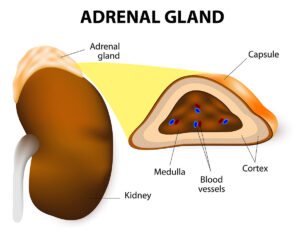 .
.
Each adrenal gland has two main parts. The outer layer is called the adrenal cortex, and the center part is known as the adrenal medulla. Each produce different types of hormones that have specific jobs to do. They work together to keep you balanced and ready for whatever comes your way!
But… when your adrenals start experiencing problems, it can lead to a wide range of health issues. So it’s important to keep them functioning optimally!
Symptoms of poor adrenal health…
Poor adrenal health can be the result of a variety of causes and can mimic other health issues. Here are a few symptoms to watch out for:
 ____ Fatigue and lack of energy
____ Fatigue and lack of energy
____ Stress intolerance and mood changes
____ Low blood pressure
____ Hypoglycemia (low blood sugar)
____ Salt cravings
____ Digestive problems
____ Darkened skin on specific areas
____ Loss of body hair
____ Loss of appetite and weight loss
Recovering from adrenal fatigue / insufficiency…
The adrenal glands produce hormones that are both life-sustaining and supportive of other physiological processes in the body such as balancing the body’s salt and water, keeping normal blood pressure, metabolizing food into energy, managing blood sugar levels, and stress responses.
When there is too much or too little of these hormones, a hormonal imbalance can occur, and when they are out of balance, problems can escalate quickly. Cortisol, the body’s main stress hormone, is one of the hormones released by the adrenals in response to stress. The more stress, the greater the amount of cortisol released. When you experience stress all the time, the adrenal glands are depleted, a condition referred to as adrenal fatigue, one of the most common health conditions experienced by many people today.
Thankfully, adrenal fatigue recovery is possible. Here are steps you can take to heal damaged adrenals:
Reduce stress
Chronic stress can lead to adrenal fatigue, so finding ways to manage stress is crucial. You will first have to identify and limit sources of stress in your life, as stress can come from a variety of sources.
You may also have to practice stress-reducing techniques or mind-body practices like tai chi, yoga, progressive muscle relaxation, guided imagery, or biofeedback.
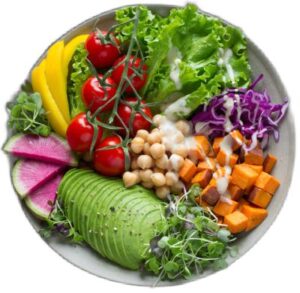 Eat a healthy diet
Eat a healthy diet
Nutrition plays a huge role in stress management as certain vitamins and minerals provide the body with energy which helps the adrenals be more resilient to stress. Eating healthy fats, whole grains, fruits, vegetables, lean protein and foods rich in vitamins and minerals will go a long way in improving your adrenal function. Stay hydrated, but limit caffeine and alcohol, as they can disrupt the adrenal glands and exacerbate adrenal fatigue.
Supplement with Shaklee
It is now generally accepted that no matter how healthy your diet, you can rarely get all of the 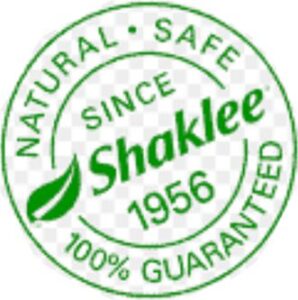 nutrients your body needs from food alone. Our soils are depleted, produce is often sprayed with toxic chemicals, our air is full of pollutants, and processed foods are the norm. For these reasons… and more… supplementation is necessary to adequately feed your cells.
nutrients your body needs from food alone. Our soils are depleted, produce is often sprayed with toxic chemicals, our air is full of pollutants, and processed foods are the norm. For these reasons… and more… supplementation is necessary to adequately feed your cells.
And to make sure what’s on the supplement label is actually in the bottle and will be metabolized and end up feeding your cells, Shaklee is the only wise choice!
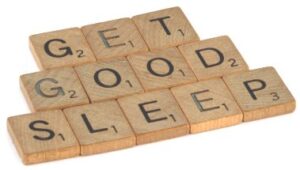 Get 7 – 9 hours of quality sleep
Get 7 – 9 hours of quality sleep
During deep and restorative sleep, the body goes through essential processes of repair and regeneration. Adequate sleep allows the adrenal glands to reset and recharge.
Exercise regularly
Regular exercise can help reduce stress and improve adrenal function. Choose activities that you enjoy and aim for at least 30 minutes of moderate activity most days of the week.
By taking these proactive steps to support your adrenal glands, you can regain vitality, improve your overall health, and enjoy a better quality of life.
The difference between adrenal fatigue and adrenal insufficiency…
The adrenal glands are the main hormone producers that facilitate the body’s stress responses. When the body is exposed to too much unmanaged stress, it may cause adrenal health disorders such as adrenal fatigue or adrenal insufficiency.
Adrenal fatigue refers to a group of symptoms believed to be experienced when a person’s adrenal glands are depleted from stress response.
However, adrenal fatigue is a controversial diagnosis as hormonal depletion due to stress or overexertion is unproven even though the symptoms are unmistakable. Therefore, the medically accepted diagnosis is usually adrenal insufficiency.
Adrenal insufficiency (both primary and secondary) refers to the incapacity of the adrenal glands to produce hormones required by the body to function optimally. Adrenal insufficiency may be diagnosed through specific tests that reveal insufficient levels of adrenal hormones caused by surgery or illness.
Primary adrenal insufficiency occurs when the adrenal glands are not producing enough cortisol and aldosterone. This may be caused by an autoimmune response, where the immune system mistakenly attacks the adrenals.
Secondary adrenal insufficiency occurs when the pituitary gland cannot produce enough adrenocorticotropin (ACTH) resulting in a deficiency of cortisol caused by steroid use or blood loss, among others.
Both can be treated by hormone replacement.
Shaklee supplements for healthy adrenals
Vitamins and minerals play a vital role in supporting adrenal health and recovery, as they are involved in aiding the various processes related to hormone production, energy metabolism, and stress response. .
Here are some of the vitamins and minerals (and the Shaklee supplements which contain them) that are often associated with adrenal health:
One of the most important macronutrients to help in the recovery of strained adrenal glands are healthy fats, as fatty acids essentially form the backbone of hormones.
Omega 3’s | The Science and Benefits
Vitamin B (B-Complex)
B vitamins, including B5 (pantothenic acid) and B6, are integral for adrenal function as they contribute to the production of adrenal hormones and neurotransmitters that regulate mood and stress. Additionally, B vitamins help convert food into energy, assisting in combating fatigue.
Stress uses up your body’s B vitamins and depletes them at a much faster rate. Increasing your intake of B vitamins such as thiamine (vitamin B1), panto-thenic acid (vitamin B5), pyridoxine (vitamin B6), cobalamin (vitamin B12), and niacin (vitamin B3), will improve your body’s stress response.
Vitamin B3 helps regulate the sleep/wake cycle, vitamin B5 helps with restoring balance in terms of cortisol production, and vitamin B6 can bring a feeling of calmness and ease, which help both stress response and recovery.
Vitamin C (Sustained Release Vita-C / Chewable Vita-C)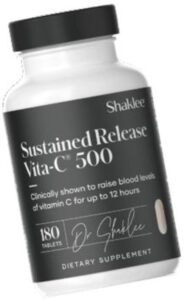
Vitamin C is well known for boosting the immune system, and it can also reinvigorate the body with energy. The adrenal glands need vitamin C to help with the production and secretion of cortisol, a hormone that aids in managing stress.
Chewable Vita-C®
Often referred to as the sunshine vitamin, as the body converts the sun’s rays into vitamin D, this nutrient is essential for managing stress.
Vitamin D is associated with lower levels of cortisol, which is why it is helpful in adrenal fatigue healing and recovery. Deficiency in vitamin D also plays a role in conditions like depression, and fatigue, symptoms of poor adrenal health.
Vitamin E (Vita-E Complex / Vita-E 400 IU)
Free radicals are capable of damaging the cells and play a role in the formation of several chronic health conditions like heart disease, diabetes, and cancer. Vitamin E helps neutralize these damaging effects in the adrenal glands and contributes to the reduction of cortisol levels associated with high levels of stress.
Magnesium (Sustained Release VitalMag)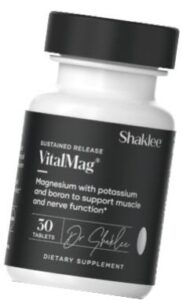
Magnesium, an essential mineral, is also vital for adrenal health as it supports relaxation, sleep, and the body’s response to stress.
Enhancing adrenal health through good nutrition involves a strategic selection of vitamins and minerals that support the adrenal glands’ vital functions.
The four stages of adrenal fatigue
Adrenal fatigue refers to a group of symptoms signaling that the adrenal glands are on overdrive and unable to keep up with the amount of strain the body is going through. The four stages progress like this:
Stage 1: Alarm Reaction
Adrenal fatigue begins as a normal alarm reaction of the body against stress. During this stage, the body gets flooded with stress hormones… cortisol, adrenaline, and norepinephrine. However, a continuous alarm response or chronic stress can lead to the second stage.
Stage 2: Resistance Response
The next stage occurs when stress is continuous and becomes chronic. Normal performance decreases, fatigue increases, and you may experience insomnia, anxiety, irritability, and lowered immunity. Eventually, the adrenal glands can no longer produce enough stress hormones to meet the body’s demands.
Stage 3: Adrenal Exhaustion
By now, the adrenals are overworked and are nearly beyond recuperation. Other circuits in the NeuroEndoMetabolic (NEM) stress response start to become disrupted. Organs that are not needed for survival (i.e. the reproductive system) begin to slow down.
Stage 4: Adrenal Failure
The final stage is a complete failure of the adrenal glands signaled by intense pain in the legs, lower back pain, abdominal pain, severe vomiting, fainting, dehydration, and a drop in blood pressure. You are now at great risk of cardiovascular collapse, even death.
Wow! You’ll love the YOUTH Ageless™ Duo!
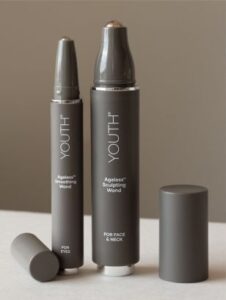 Want to erase those unsightly wrinkles on your face, neck and around your eyes? Then try the new YOUTH Sculpting Wand for Face & Neck with Smoothing Wand for Eyes… a two-product combo that will instantly firm, smooth, and relax the appearance of expression lines so you look younger longer!
Want to erase those unsightly wrinkles on your face, neck and around your eyes? Then try the new YOUTH Sculpting Wand for Face & Neck with Smoothing Wand for Eyes… a two-product combo that will instantly firm, smooth, and relax the appearance of expression lines so you look younger longer!
In a clinical study of 30 participants using YOUTH Ageless Sculpting Wand for Face & Neck and YOUTH Ageless Smoothing Wand for Eyes twice daily for 28 days:
♦♦ 100% showed improved skin firmness after 15 minutes of first application
♦♦ 100% demonstrated even more skin firmness after 28 days
♦♦ 100% showed reduced appearance of face wrinkles using the YOUTH Ageless Wand for Face & Neck
♦♦ 91% showed reduced appearance of eye area wrinkles using the YOUTH Ageless Smoothing Wand for Eyes
You don’t have to sacrifice safety and purity for efficacy. YOUTH products are dermatologist-tested and approved, 100% vegan, cruelty-free, and free from 2,500+ harmful chemicals and questionable ingredients.
Introducing Ageless
Introducing Ageless™, two new innovative skincare solutions clinically tested to instantly relax the appearance of wrinkles with ingredients that support collagen over time. The YOUTH® Ageless Sculpting Wand visibly lifts, firms, smooths and sculpts the face and neck. When you use the YOUTH® Ageless Smoothing Wand around the delicate eye area, wrinkles appear softened, under eyes appear brightened, and crow’s feets appear smoothed. For visible results instantly and over time, Ageless contains powerful cutting edge ingredients that deliver clean beauty without compromise.
Key ingredients…
Power8 Peptide Blend… 8 clinically tested peptides makes up 25% of the formula. Peptides are short chains of amino acids that are the building blocks of proteins needed by the skin, including collagen and elastin.
Youth Complex… helps protect and repair cellular DNA in the skin while slowing the breakdown of collagen and elastin. Includes muscadine grape, apple cell extract, Lotus japonicus and Schisandra chinensis extract.
Patent-Pending Polyphenol Blend… shown to help slow the breakdown of collagen and elastin to reveal firmer-looking skin.

